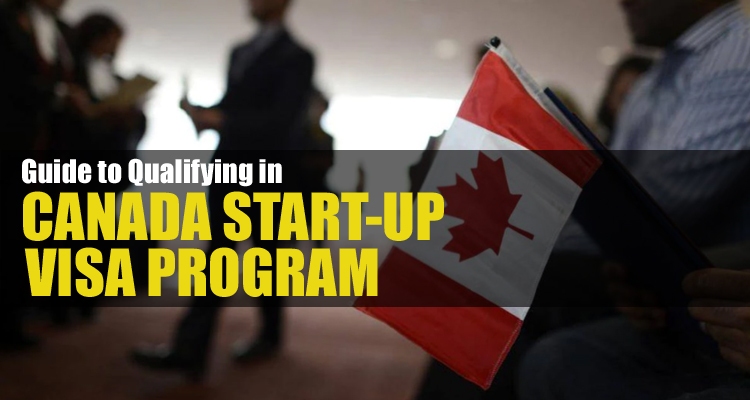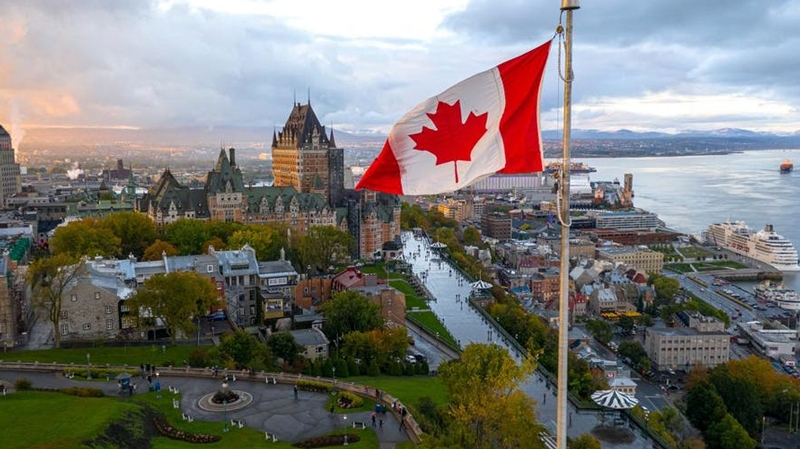Guide to Qualifying in Canada Start-Up Visa Program
In 2013, the Canadian government introduced a program to attract foreign entrepreneurs who want to start a business in Canada. Known as the Canadian Start-Up Visa Program or in official terms, the Canada Start-Up Class, the program is a two-step process. It begins with a temporary work permit application and then a permanent residency application follows.
Before applying, a foreign business candidate should understand what this program entails, including the application requirements, the visa timeframe, and the conditions that may accompany the Start-Up Visa Program. This guide will help answer those questions and provide an overview of the visa Canada process.
Also Read: 8 Things to Keep in Mind Before Moving to Canada from Dubai
An Introduction to Canada’s Start-Up Class
As previously highlighted, the Canada Start-Up Visa program targets foreign entrepreneurs seeking to tap into Canada’s business-enabling ecosystem. To establish their start-ups via this one-time three-year pilot, these entrepreneurs seek private investment, but first, they need a work permit issued by their designated Canadian investors, the latter being business incubators, venture capital funds, or even angel investors.
Since the program’s inception, thousands of foreign entrepreneurs have come to Canada. Some of these applicants have found new frontiers for their existing businesses on Canadian soil; others have established partnerships and started working on international projects; and still, others have opted for the more “Canadianized” course of settling in the country permanently with their families.
Also Read: How to Sponsor Your Family in Dubai to Canada : A Complete Guide
Eligibility Requirements
Several factors come into play when considering who can be eligible for this program. However, they are streamlined into four categories, namely:
- An eligible business
- Language requirements
- Letters of support from designated Canadian investors
- Sufficient funds to live in Canada before business breaks even
Before addressing these factors one at a time, let’s examine the admissibility requirements which apply to all applicants under this program, as well as everyone else seeking to immigrate to Canada.
It’s important to consider such requisites as, without them, an applicant may be ineligible for residence in Canada. First, the IRCC will require specific personal details, including:
- Age
- Country of Origin
- Educational attainment
- Language proficiency
- Professional experience
- Relationship status
- Information regarding employment or business
- Earnings or net worth or both
Details in these areas will influence admissibility. However, that’s not all. Additional considerations could include prior criminal records, which may preclude an applicant from receiving permanent residency or even a temporary work permit.
An Eligible Business
Generally referred to as a qualifying business, a start-up business may count toward eligibility for a visa on the premise that it complies with these criteria. The first requirement is an investor’s commitment to the candidate. Under this category,
- A minimum of 10% of the voting rights applicable to the company’s outstanding shares are held by each applicant. Note that the maximum number of owners is five.
- Additionally, investors and applicants control more than half of the voting rights applicable to all outstanding shares of the company during the period.
In order to qualify for permanent residency, the applicant must meet the second requirement. They are as follows:
- Incorporate the start-up in Canada.
- Conduct the important aspects of business operations in Canada.
- Actively manage the business from within Canada.
This segment is a fraction of the overall requirements that must be met before an applicant receives the designated visa to establish a business in Canada.
Language Requirements
Two languages are of utmost importance when setting up in Canada — English and French. With them, foreign entrepreneurs can communicate effectively with associated parties, including shareholders, clients, and employees. This application process requires a language assessment from a reputable provider.
Examples of such providers are Test d’évaluation de français (TEF) for francophones and the International English Language Testing System (IELTS) for English-speakers. For eligibility, CLB5 is the minimum requirement, which encapsulates writing, listening, reading, and speaking.
Investors’ Letters of Support
During this application phase, the entrepreneur meets with investors to gain their support in a potential business. It embeds the following actions.
- Learning how investors get their funding.
- Selling them on a business idea worth backing financially.
- And then, obtaining the letter.
Be sure not to use a cookie-cutter approach when pitching to various potential investors since each one has unique expectations. Some of them may require an on-site presentation of the business idea, while others could request a submitted comprehensive plan over a communication medium. With the letter in hand, the applicant presents it to the IRCC as evidence that investors are interested in the start-up.
The investors also forward a commitment certificate to the agency, which then uses it, alongside the letter, to evaluate the entrepreneur’s request. Additional business details can prove helpful, especially in reaching a conclusion.
Sufficient Funds to Live in Canada Before Business Breaks Even
Living and running a business in Canada has significant financial implications. In the case of immigration via a start-up visa, the entrepreneur is responsible for the overall expenses regarding setting up in the country. There is no monetary aid from the Canadian government, which means that the applicant must have a good financial standing before being considered.
The IRCC verifies the availability of money to cater to the applicant and associated dependents. Borrowed funds, from whatever source, are not taken into account. Family size is a determinant in stipulating the appropriate amount for sustainable living in Canada. To aid research, here are estimated financial brackets for different family sizes.
- 1 person — Can$13,300
- 2 persons — Can$16,500
- 3 persons — Can$20,300
- 4 persons — Can$24,600
- 5 persons — Can$27,900
Candidates with households larger than five should budget over Can$30,000 to cover all living expenses in Canada.
Also Checkout: Visiting Toronto from Dubai for a CoolSculpting Treatment
How Long Does the Application Take?
It could take anywhere from four to six months, after which comes the PR application. This process could take an additional 18 months before the start-up visa comes through.
The Bottom Line
Anyone planning to tap into the Canadian market and expand a corporate entity should understand the requirements before applying for a Canada start-up visa program. Without question, the program offers a straightforward approach and lays the foundation for entrepreneurs to access the Canadian government’s support system to promote business growth progressively.







